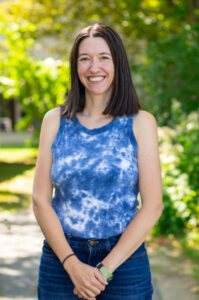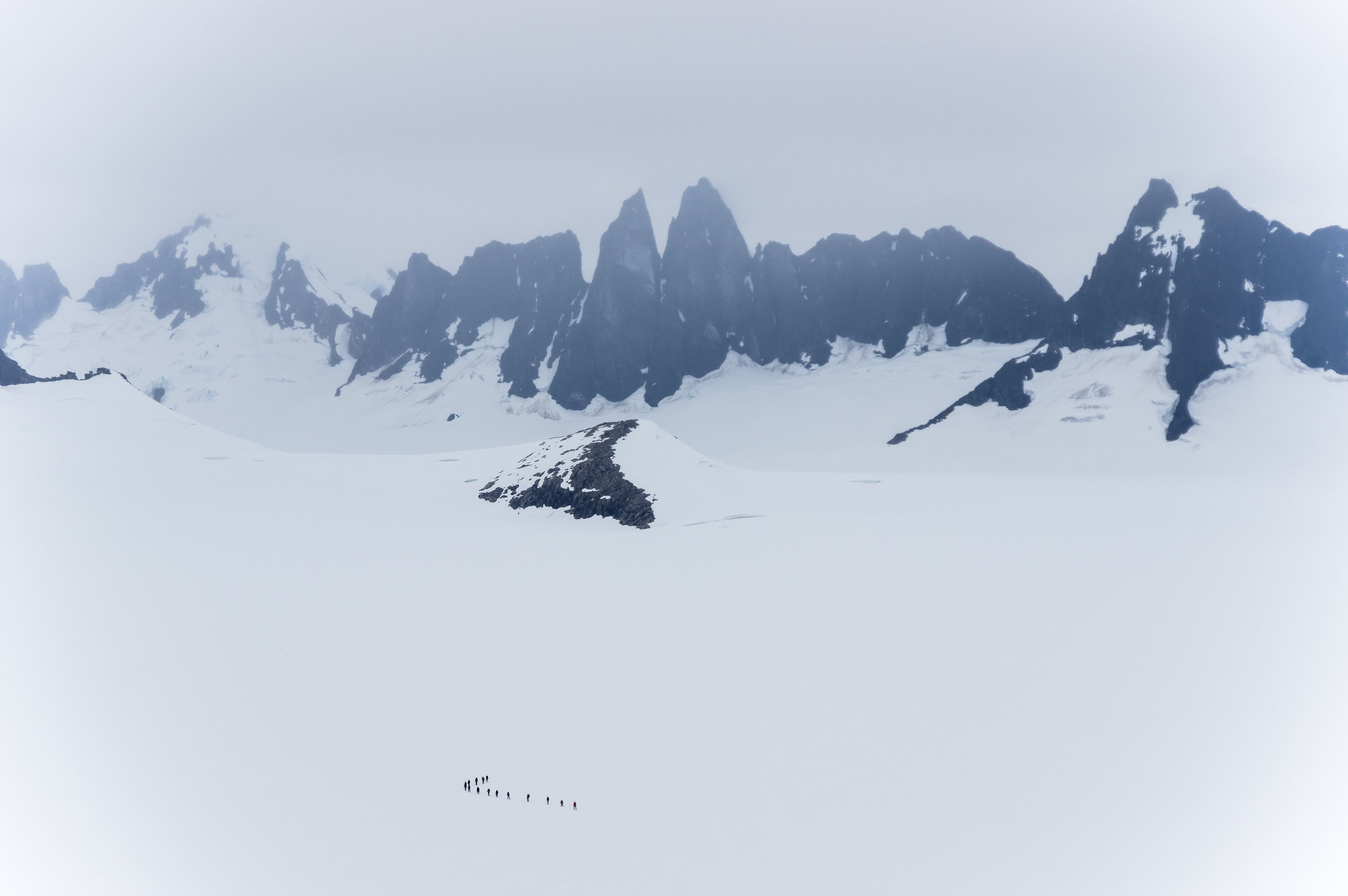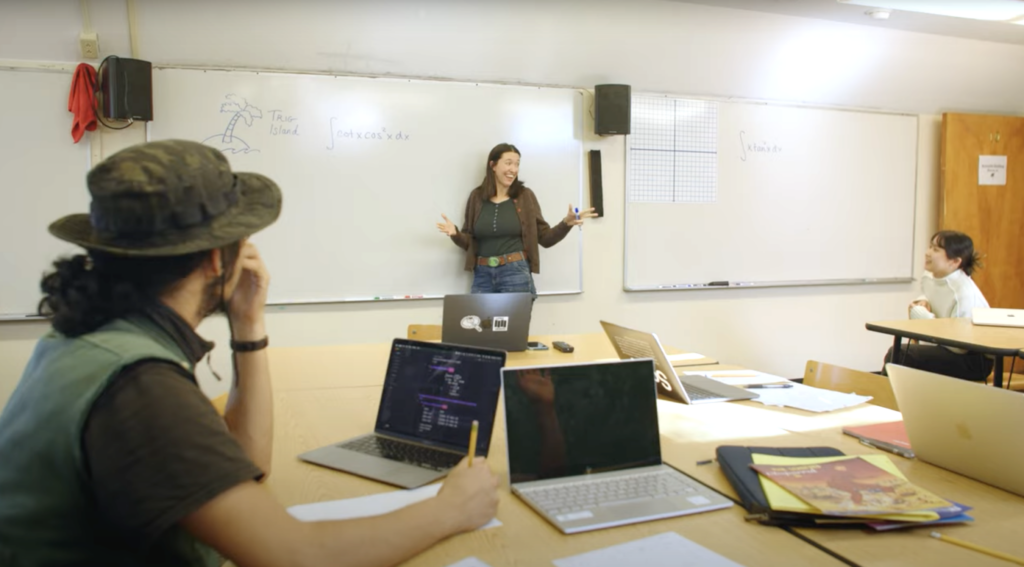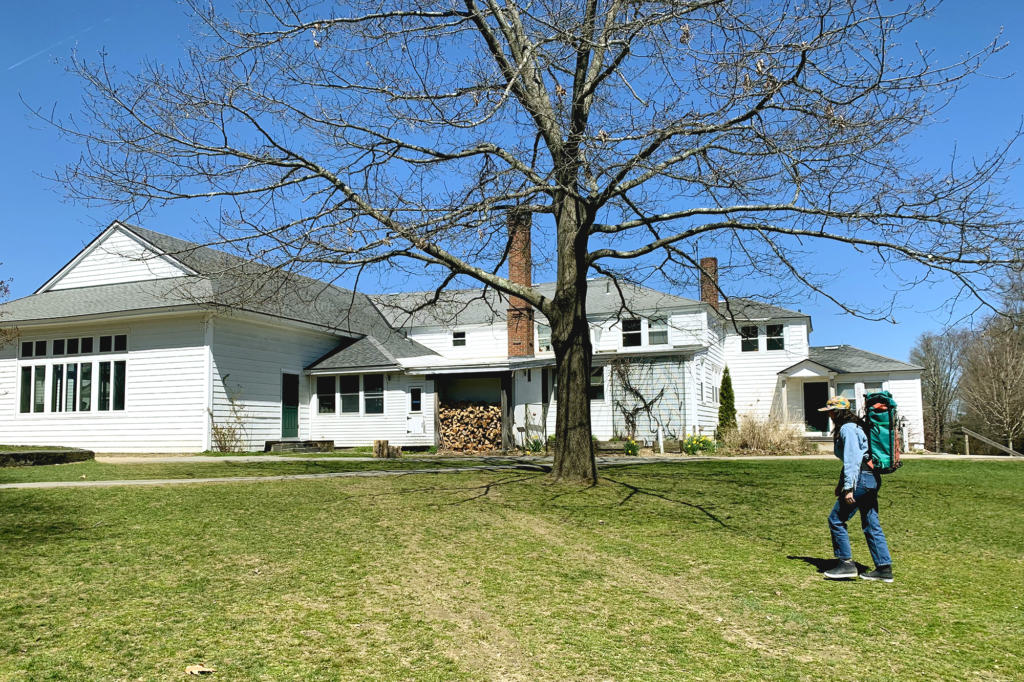

At the height of summer, Putney School Math Teacher and Department Chair Lynn Brennan will be bundled up in a helicopter over the Juneau Icefield, descending onto the world’s fifth largest glacial expanse.
A natural wonder, Alaska’s nearly 150-mile formation is also one of the fastest melting icefields on the planet. Here, Brennan will spend up to four weeks in a primitive cabin, exploring the frozen landscape, taking measurements, and turning her experience into curricula for high school through graduate students.
“I just love learning and I love participating in science,” Brennan said. “Math is so much more engaging to students when it has real-world applications.”
Through federally-funded program Polar STEAM, Brennan applied as an Educator and Research Fellow and was chosen for the Juneau Icefield Research Program’s long-running expedition. She’ll work with University of Maine researcher Seth Campbell to measure firn—a not-quite-snow but not-quite-ice substance where water from melting glaciers is stored. They’ll collect data on the properties of firn such as its thickness, density, porosity, and volume to better understand the potential impact on rising sea levels and marine ecosystems. The findings will also be used to help reduce impacts from environmental changes in indigenous communities in Alaska and Northwestern Canada, and to build an interactive video game for learning purposes.
“A big part of it is I’m going to get out there and start doing the work, and then see what specifically emerges that I can use for lesson plans,” she said.
At Putney, Brennan is known for her Calculus 2 class where she compares calculus to a reality dating show that takes place on Trig Island. The ability to make math fun comes naturally to her, and the focus on progressive learning at Putney allows her to weave her own interests into the classroom.
“I did graduate research involving climate change,” she said. “We’re encouraged to really bring a piece of ourselves into what we teach. There’s this environment where the whole community can benefit from who you are and what you’re interested in, which is really great.”
Prepared, Thanks to Putney
Brennan will be staying in camp 10, one of the largest camps (it sleeps over 60 people), and positioned in the middle of the icefield with easy access to a variety of glacial sub-environments — including Taku Glacier, the deepest alpine glacier in the world.
She will have no internet, and limited communication with her husband and two young children back in Vermont.
The weather will be wet, with a lot of rain and possibly a few days of sleet or snow. There’s often dense fog that causes white out conditions, peppered with sunny days ideal for drying out damp clothing. The warmth will feel good, but the solar radiation reflected off the snow can quickly lead to sunburns. Brennan will be outside on essentially a giant mirror, following safety protocols to put sunscreen up her nose.

But Brennan is no stranger to living in harsh conditions.
“I just love the outdoors,” she said. “I grew up on a farm. Work has to get done, even if it’s cold and snowy, or blazing hot.”
Yet being able to cope for up to a month in such a wild and remote location is certainly a factor in the Juneau Icefield Research Program’s competitive application process. When she was asked, ‘How do you entertain yourself?’, she had to laugh.
“I was like, ‘I love to darn socks!’” Brennan said. “And then I was like, ‘oh wait, I said that out loud, that’s a really weird answer. I also like to read, and do normal stuff too.’
“I’m kind of secretly a 90-year-old lady,” she added. “I don’t watch TV at all; I don’t have time. I don’t depend on technology for my entertainment, which is helpful.”

Another consideration was her ability to interact with different personalities for an extended time in close quarters.
“And I thought, boarding school is a perfect example. I live with the people I work with, I live with the kids I teach, so I’m kind of used to that,” she said. “Conflict resolution is really important. Conflicts arise between students and teachers, like maybe there’s a conflict in the dorm, and then I have to go teach that student the next day. It really teaches you a lot about boundaries, professionalism, and how to approach a conflict, resolve it, and move on.”
Putney has also prepared her to navigate uncertain and quickly changing situations.
“At Putney there’s a lot of moving pieces, and you have to make a plan and figure it out pretty quickly,” Brennan said. “For instance, I was leading a Long Fall trip and a student set their backpack down on a bees nest. People are getting stung, and in that moment you have to make all these kinds of emergency decisions.”

A melting glacier is sure to throw her many other unpredictable scenarios, and she aims to be as prepared as possible. In the weeks leading up to the expedition, Brennan took to carrying a heavy pack around campus as part of her training. She can’t wait to turn what she learns into lessons for her students at Putney, but she’s also excited that the curricula she develops will be shared on a much wider scale.
“Something that really spoke to me about this specific research project is that it puts a particular focus on underserved communities, like low income, first generation college, and BIPOC,” Brennan said.
She hopes to change the narrative of what students think about math, particularly for those who are interested in science but might be averse to the numbers side of things.
“My favorite thing is when a kid is like, ‘I don’t hate math anymore after your class.’ And I’m like, ‘Yes!’ That’s my goal, to show people that math doesn’t have to be boring and painful, and that by teaching with warmth and context, it can be really engaging and not so scary.”
It’s her way of encouraging more students to pursue STEM fields.
“Which I think is an important way to better our planet,” Brennan said. “It’s always been important to me to do work that positively impacts the world.”

